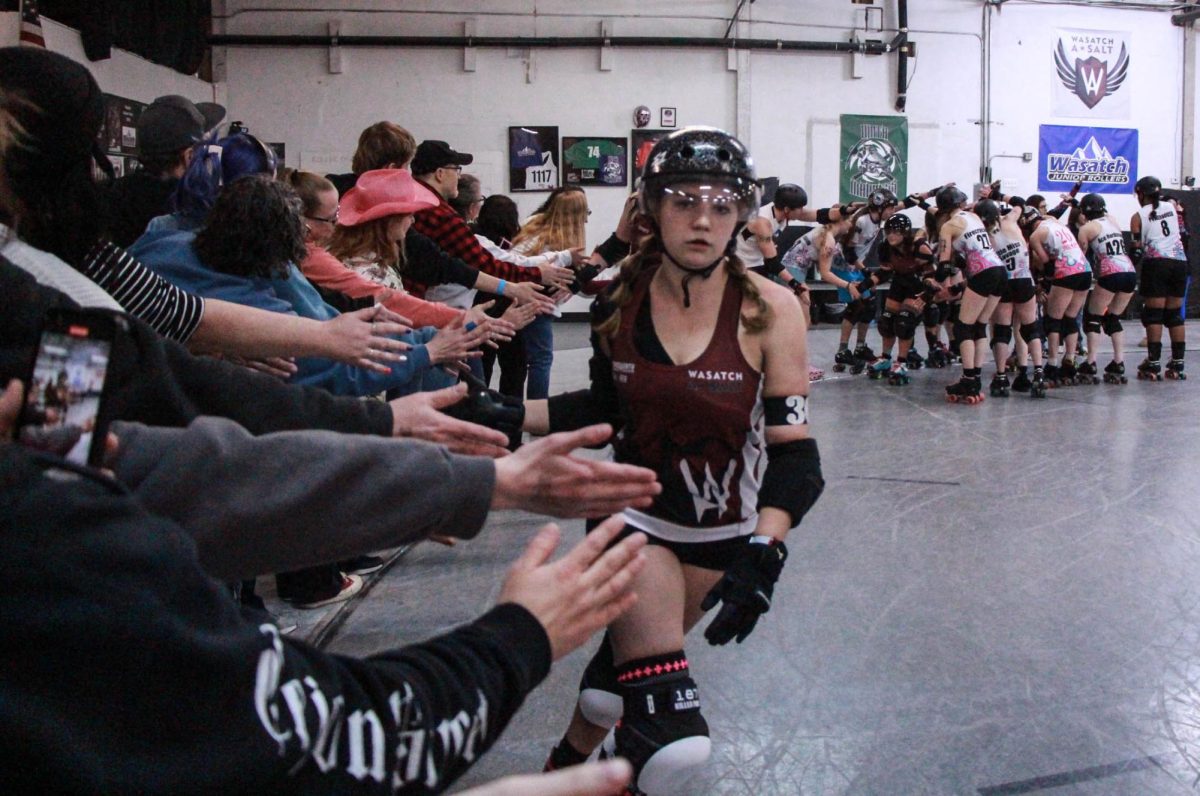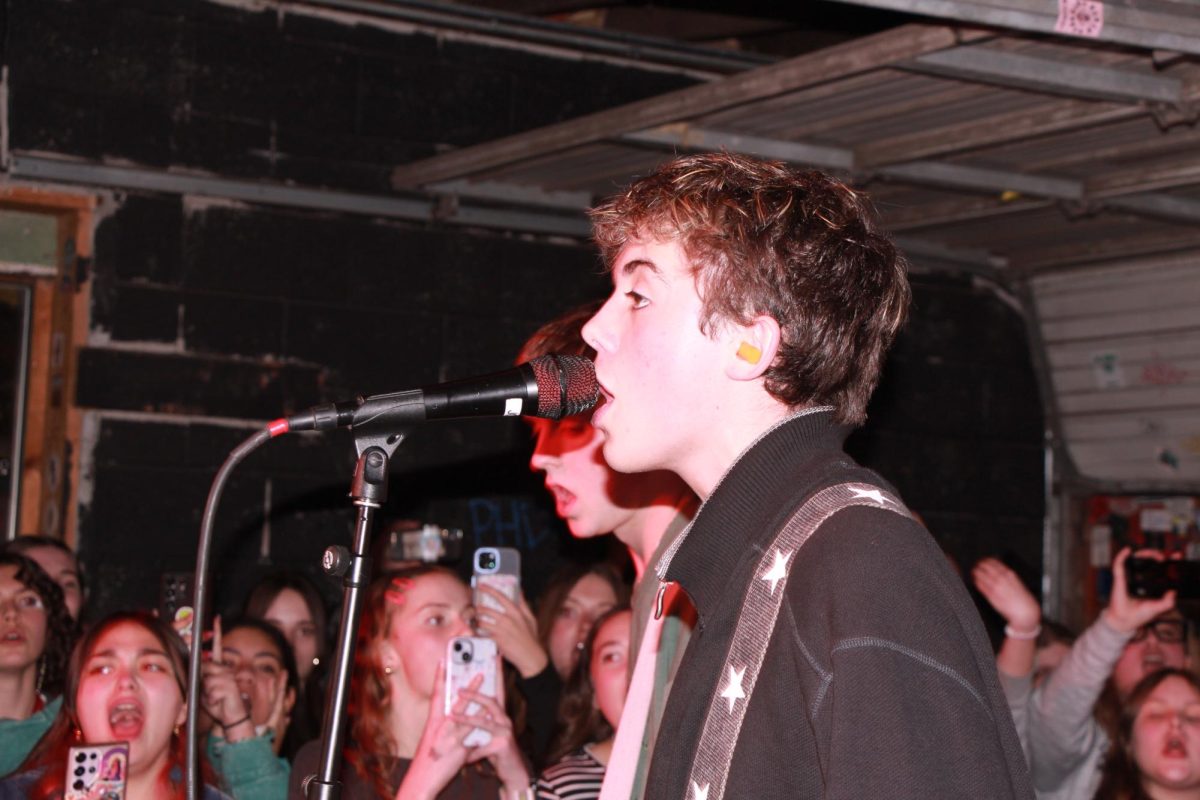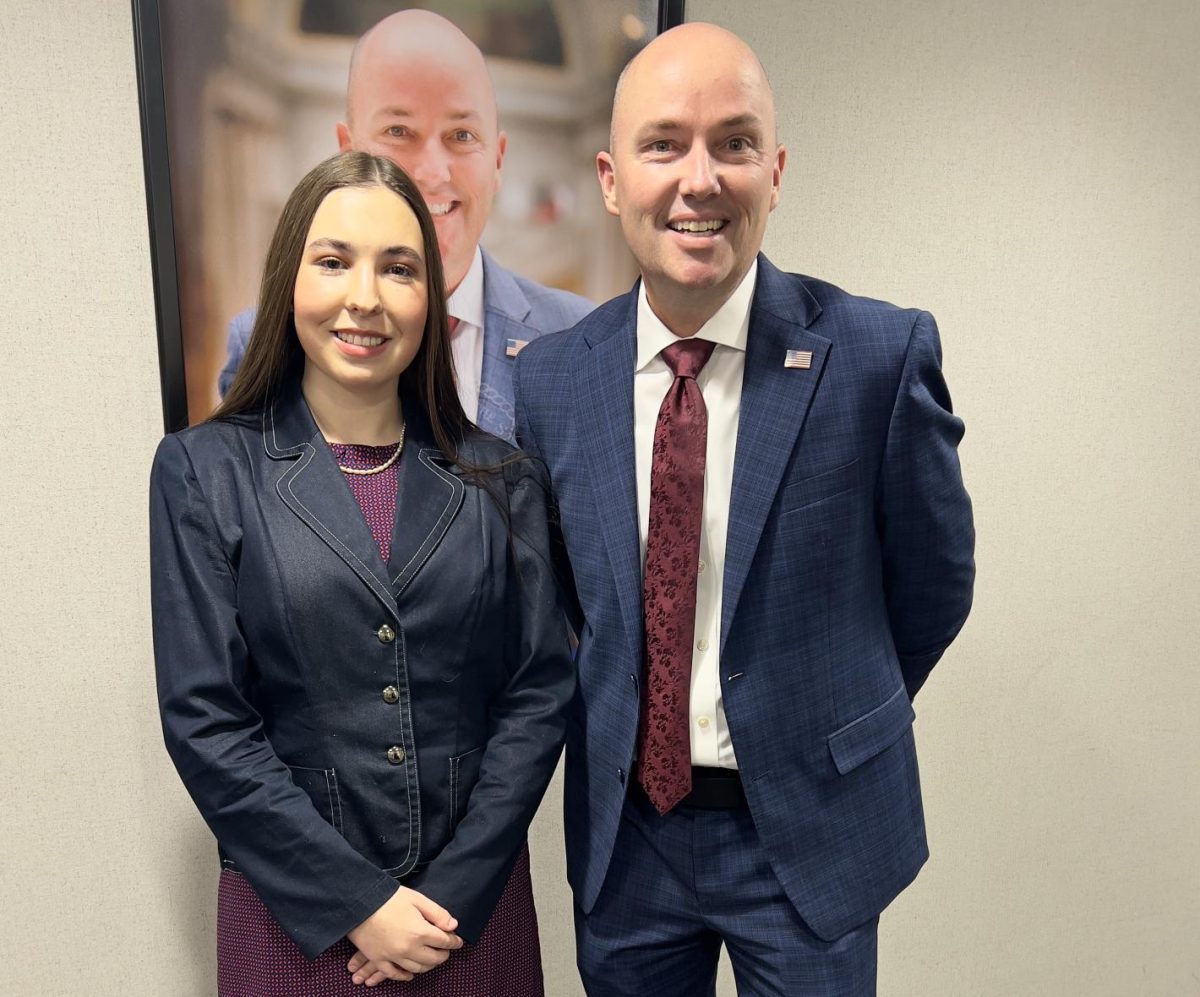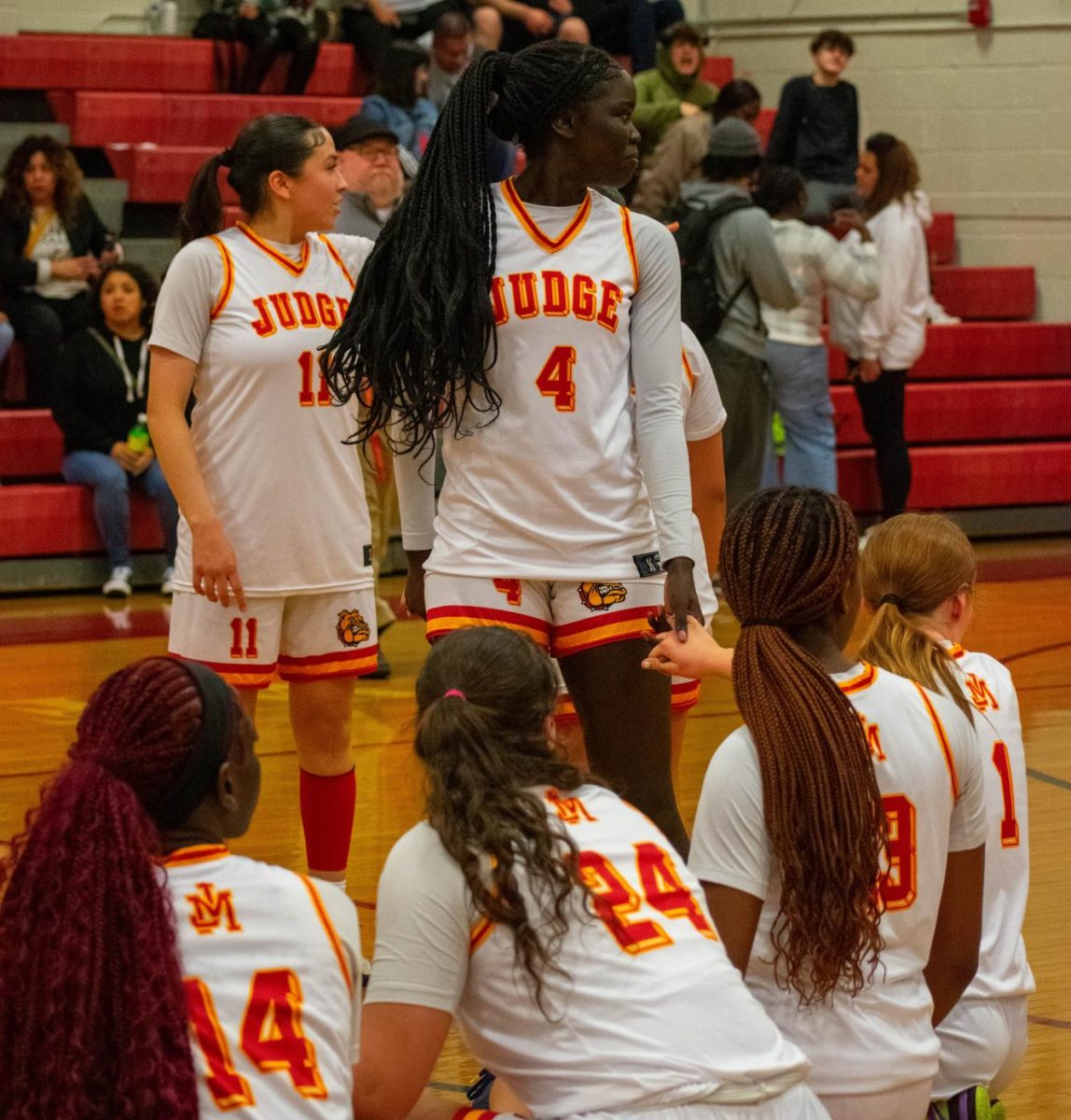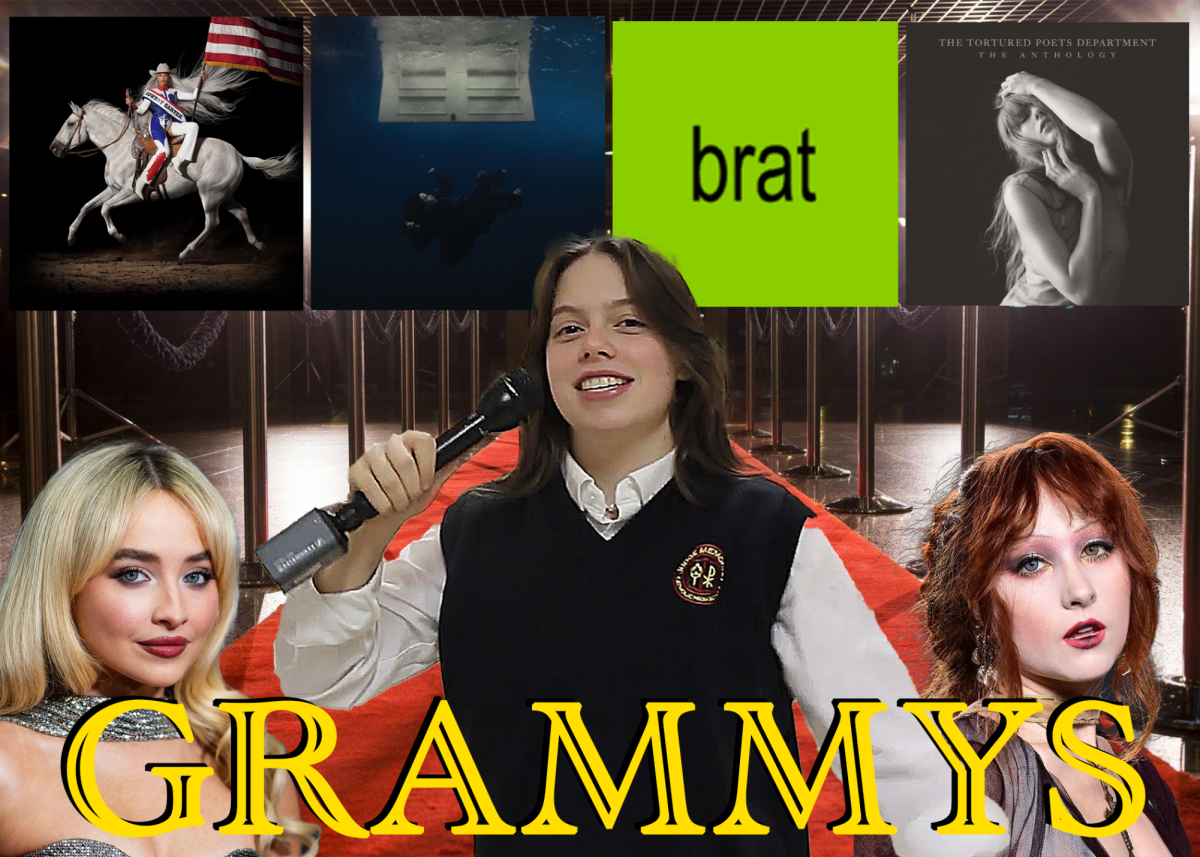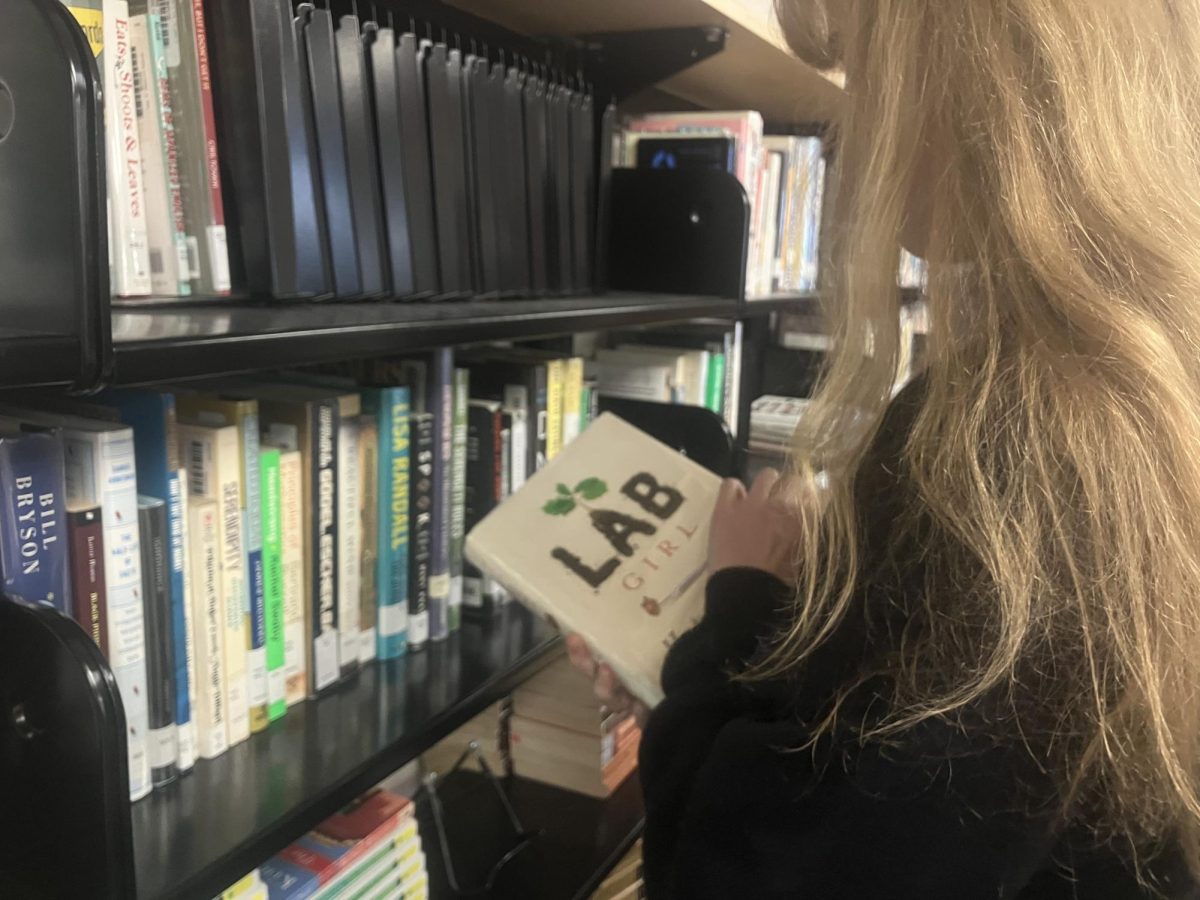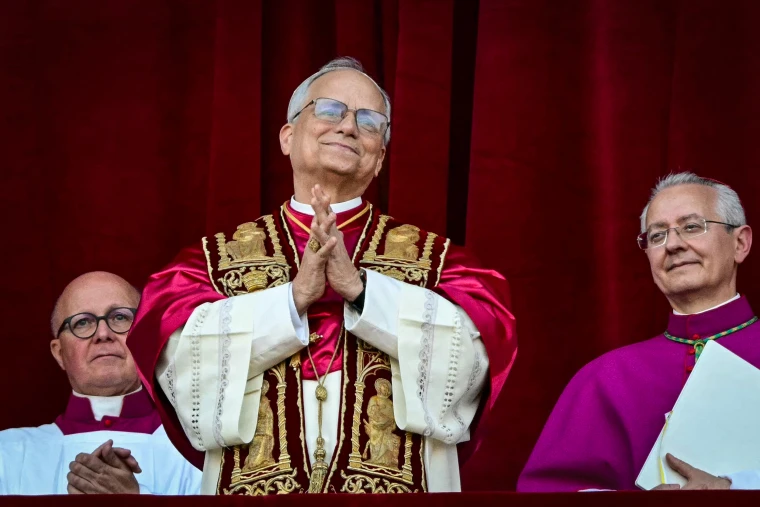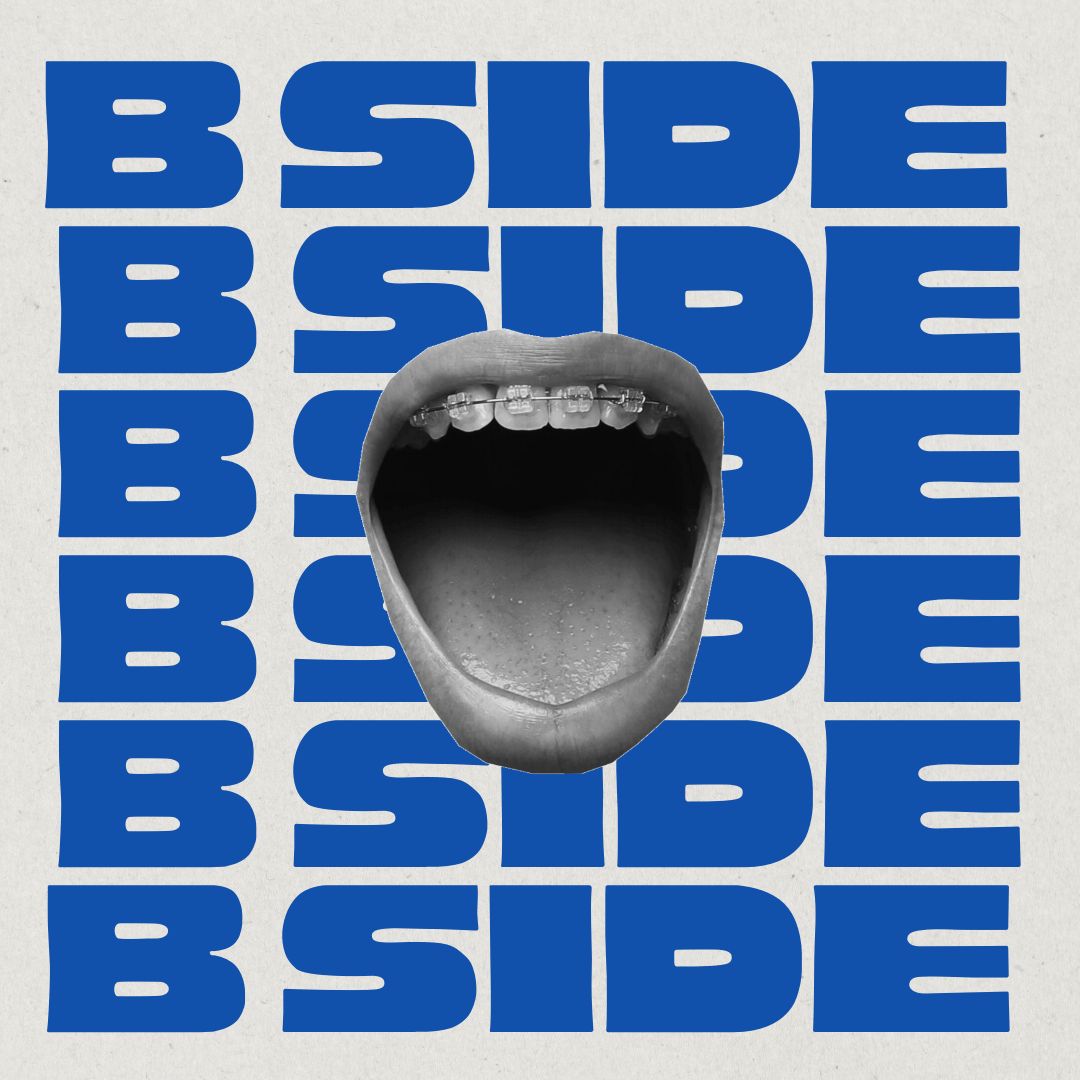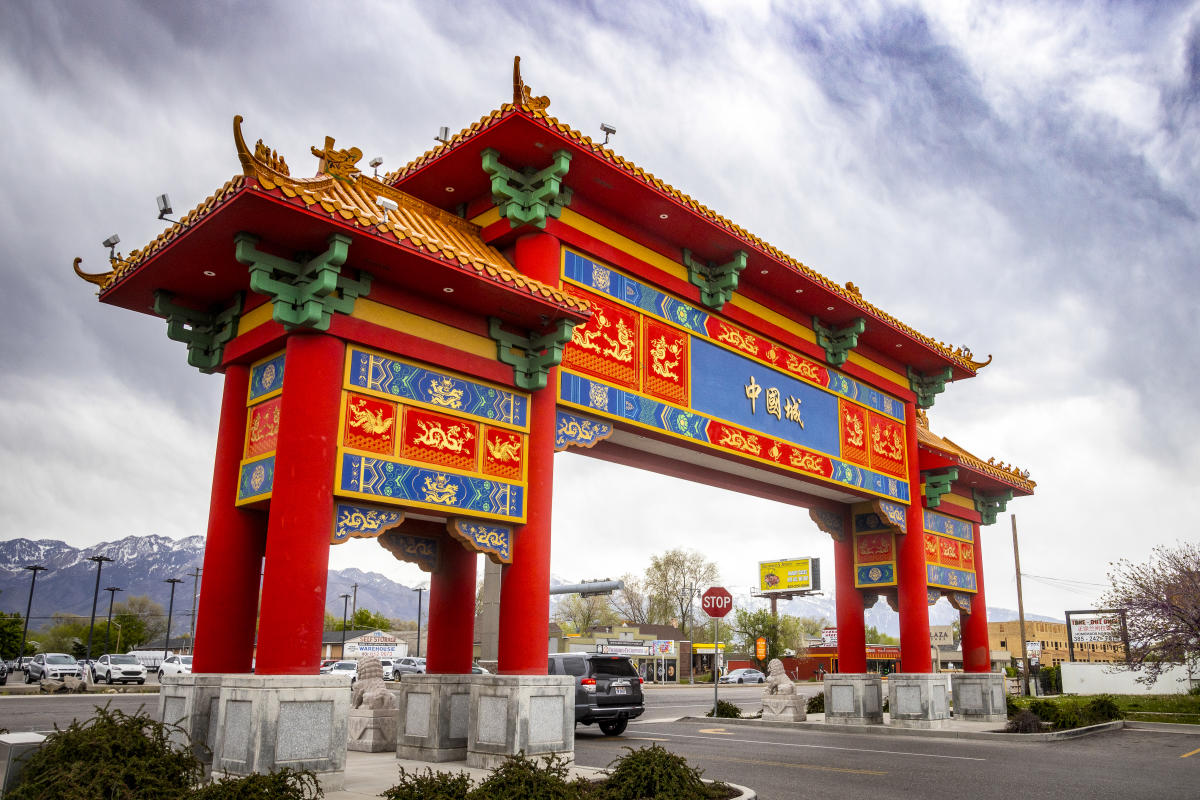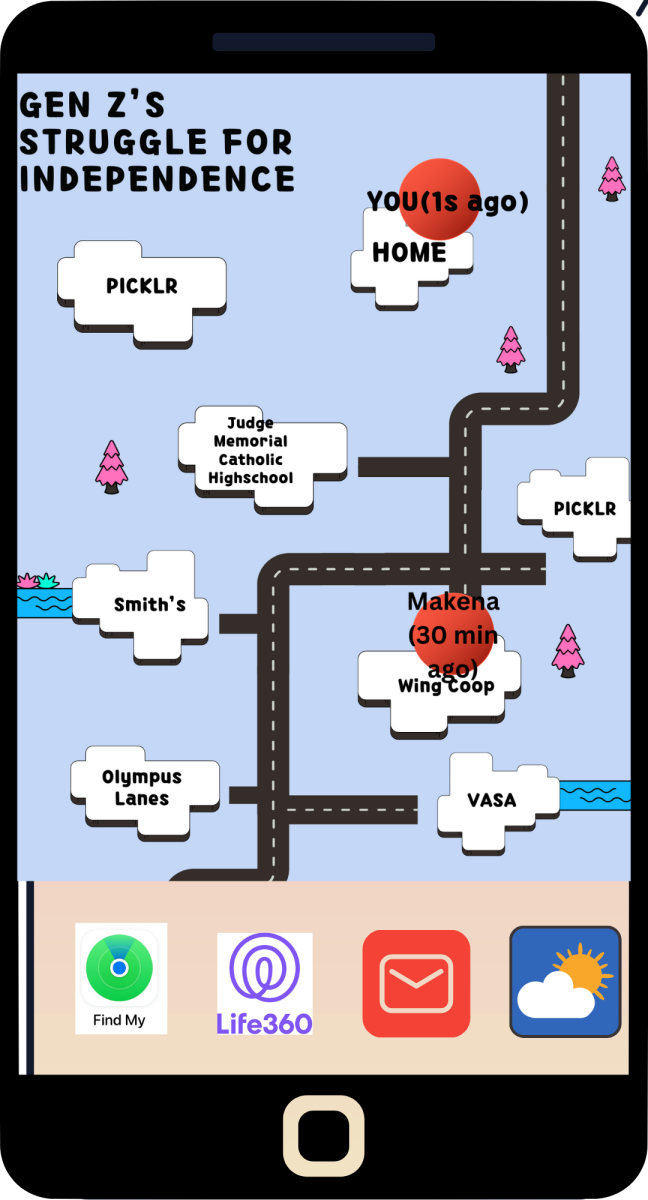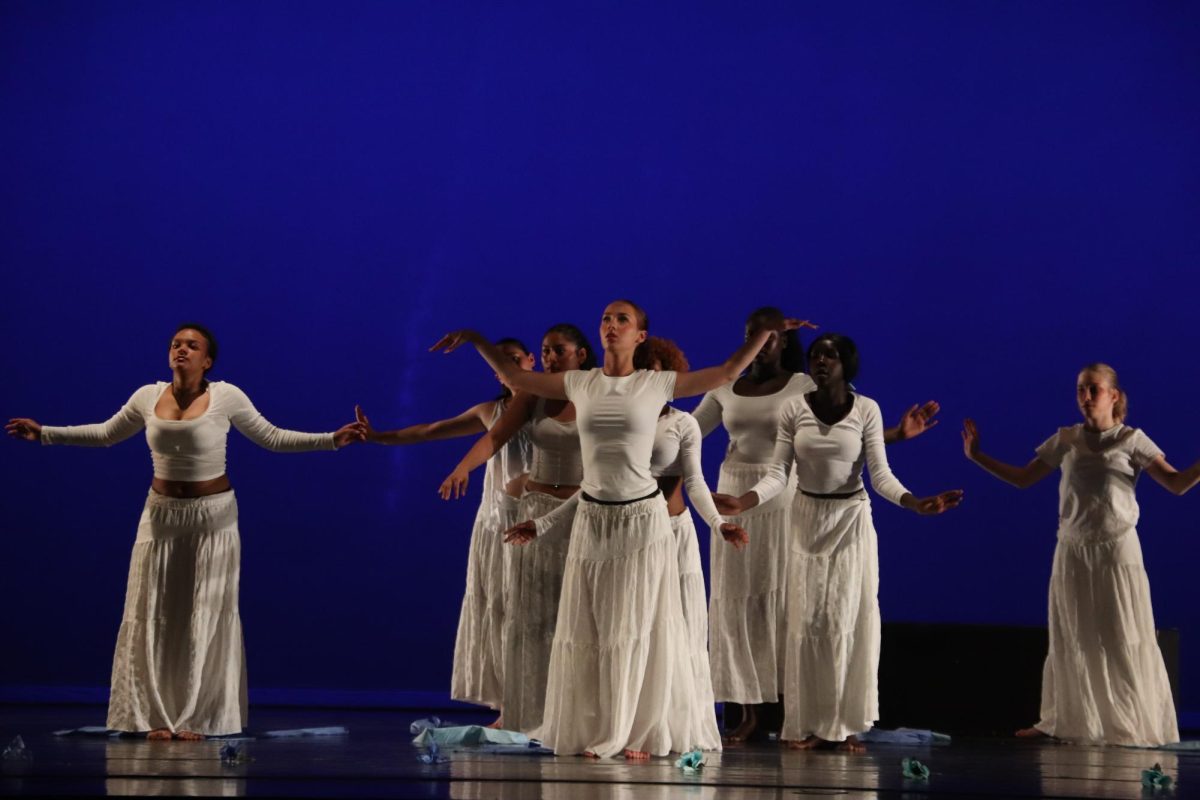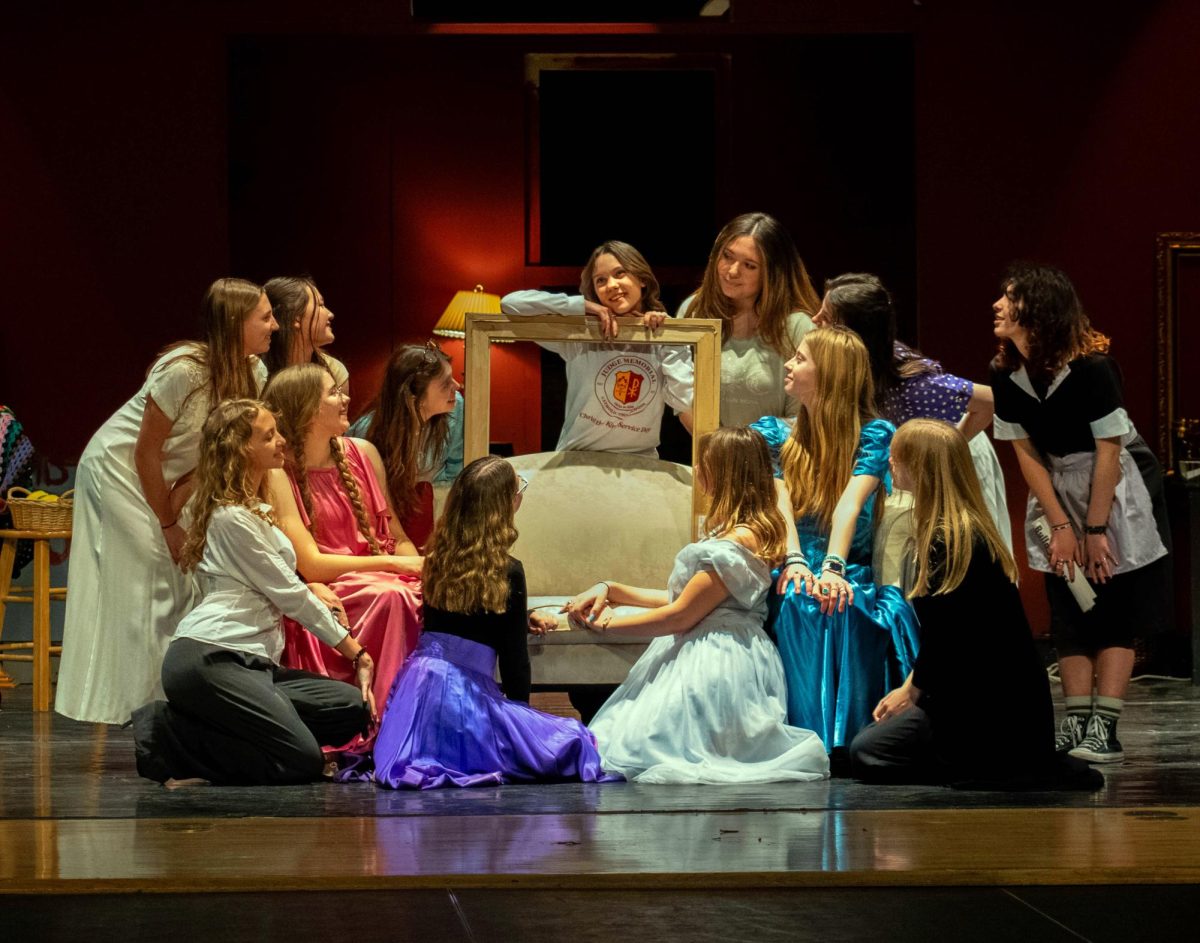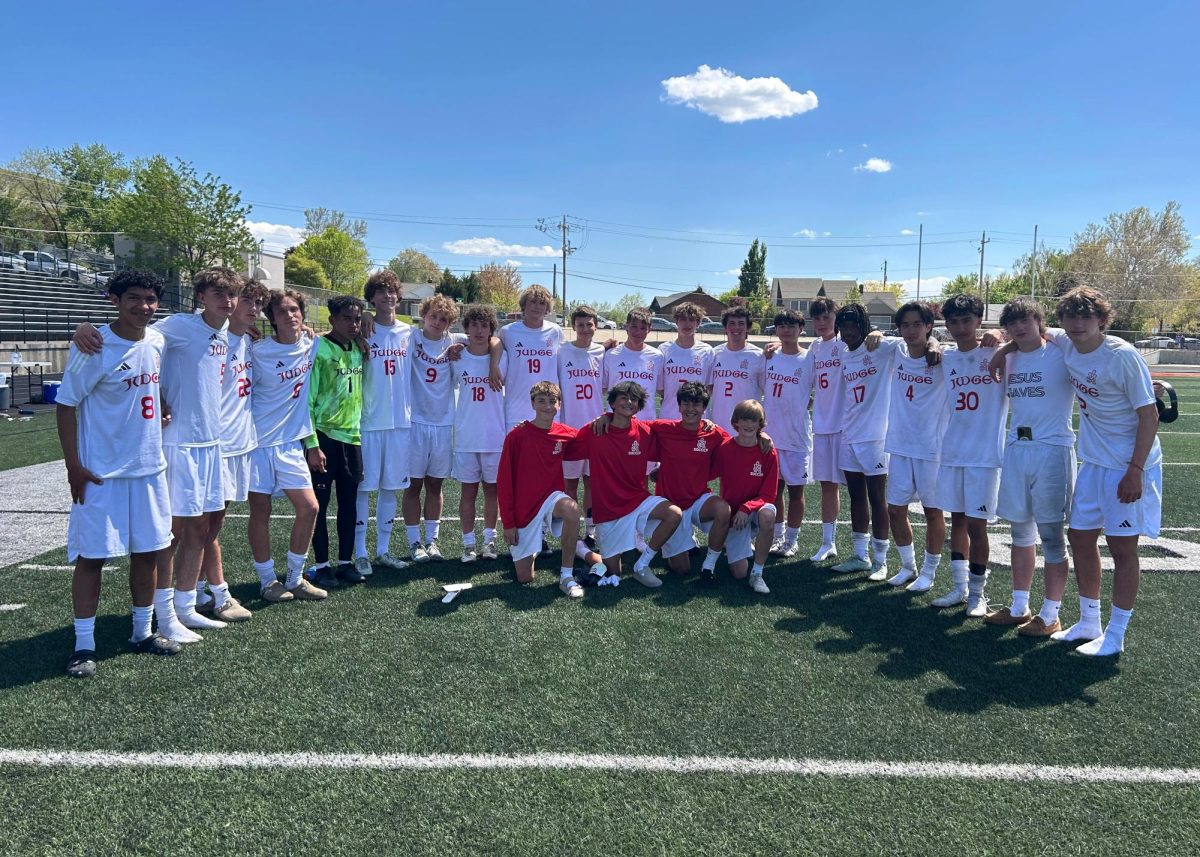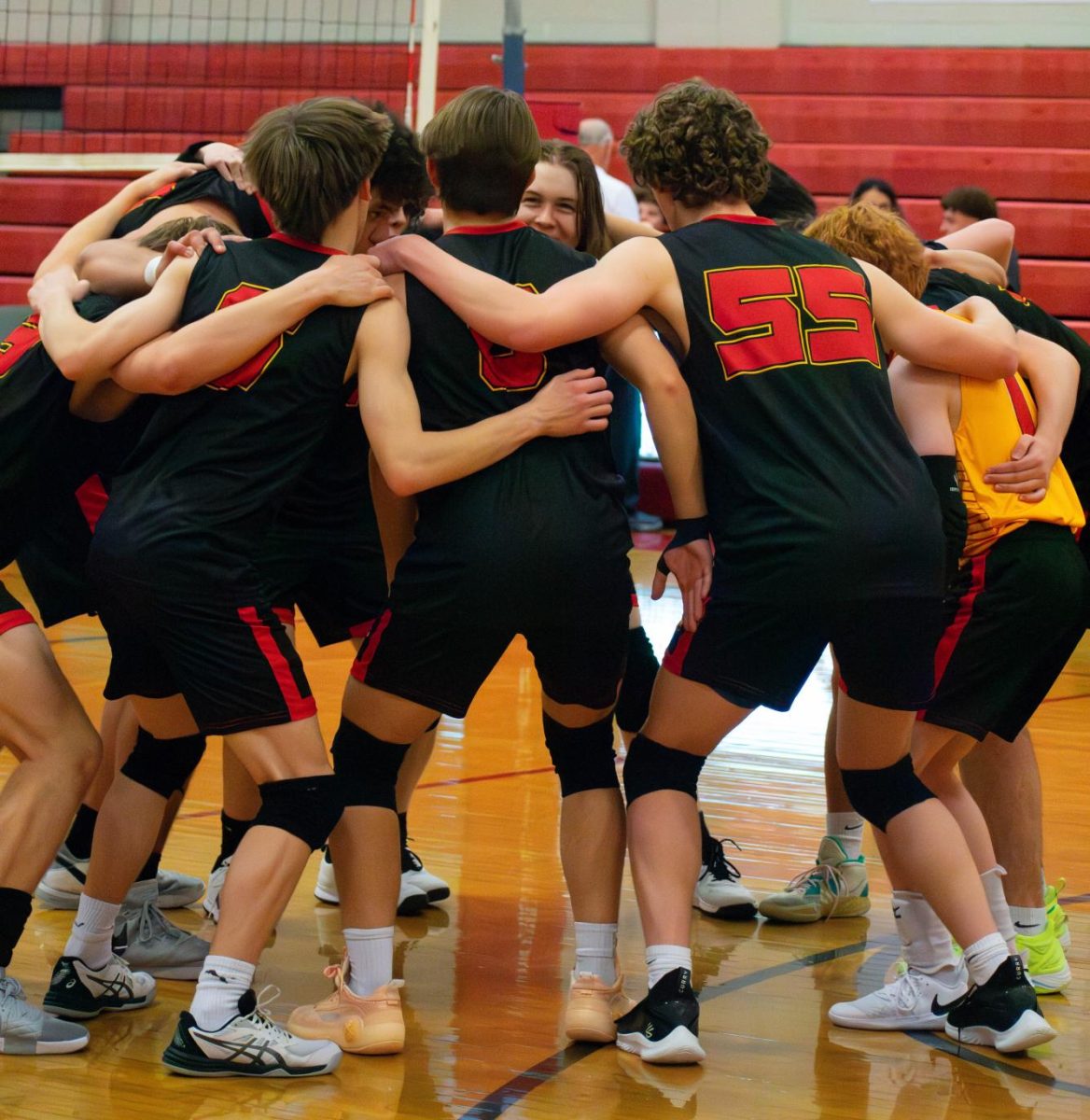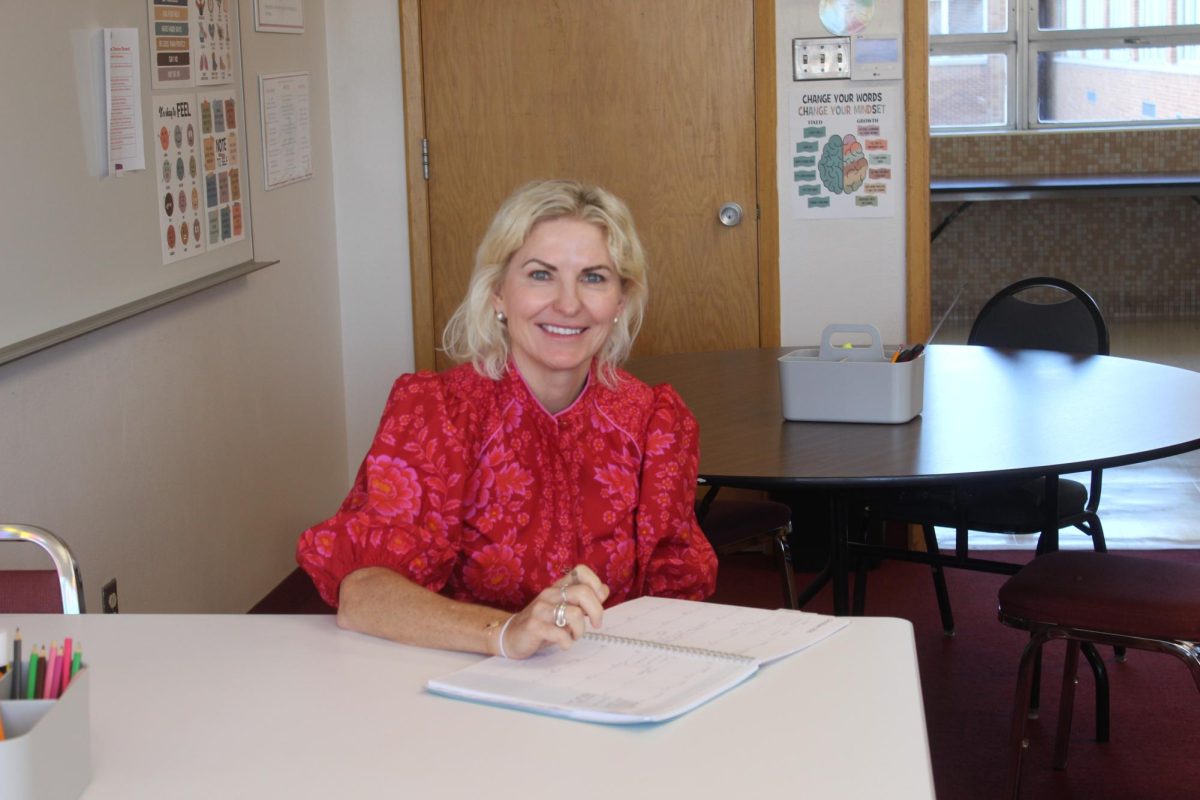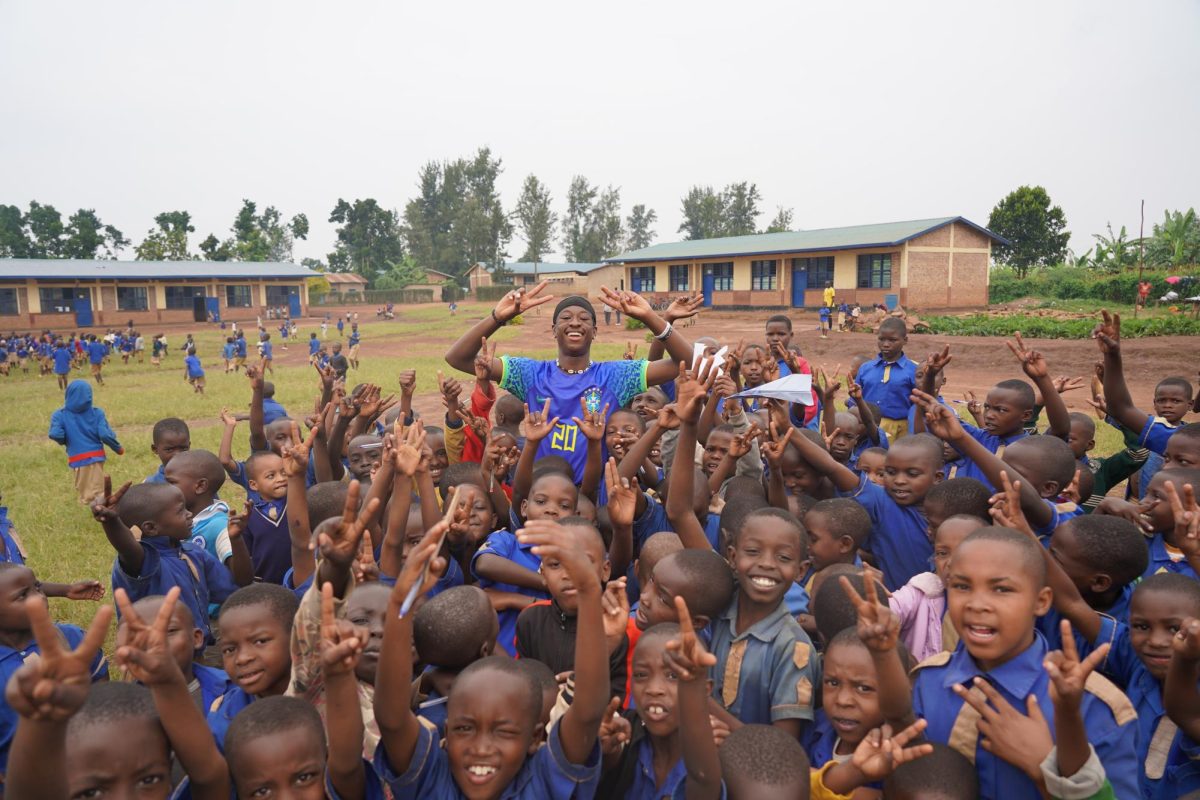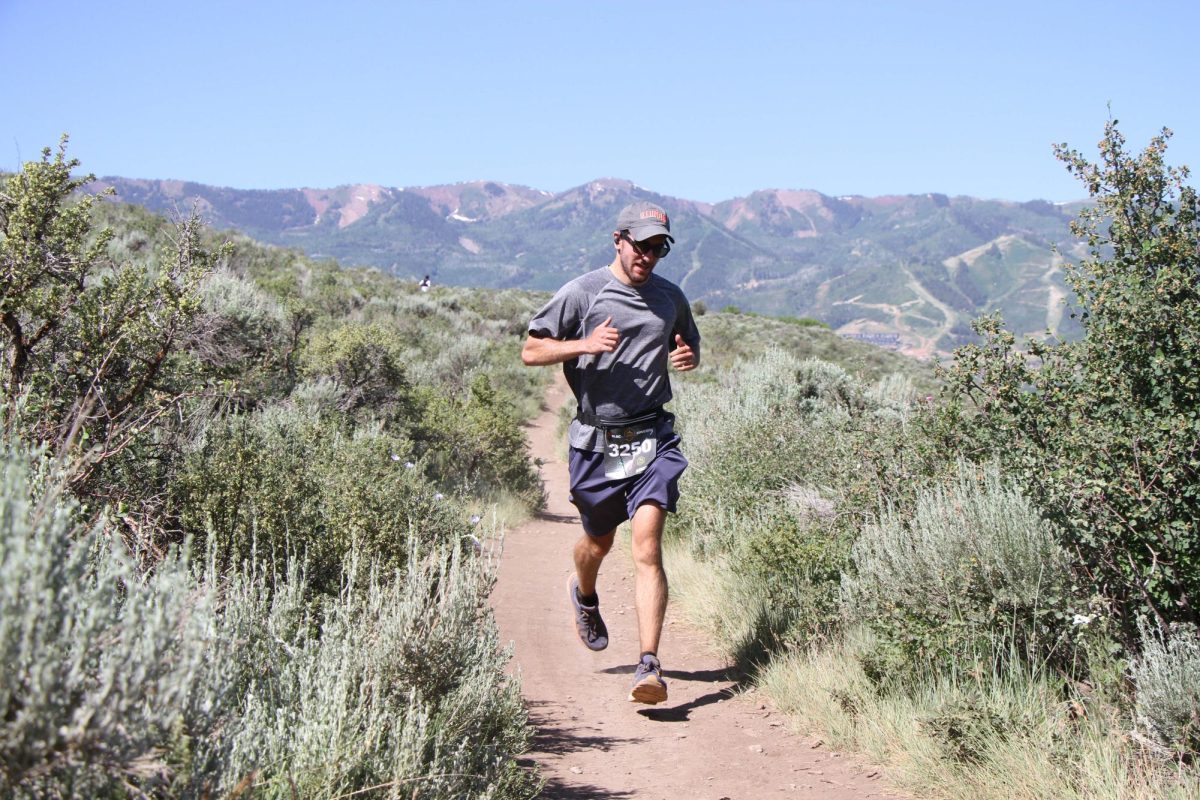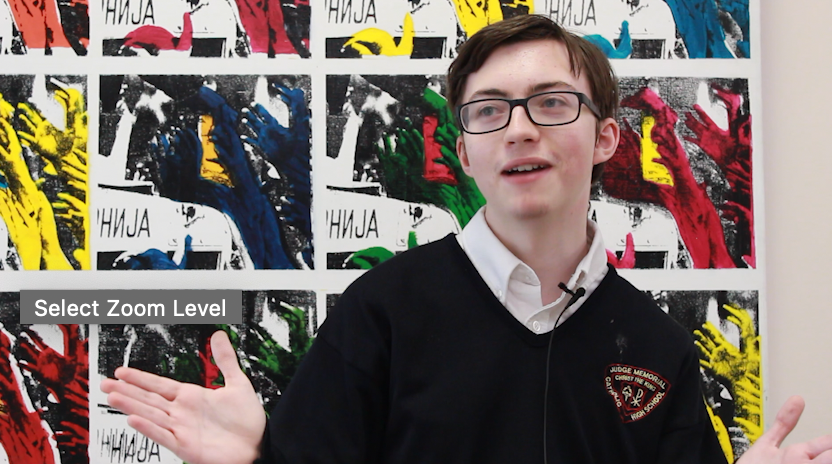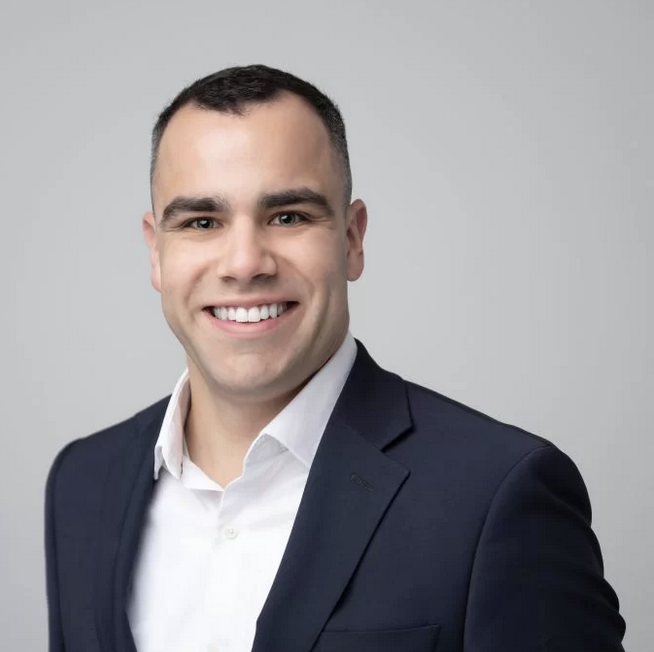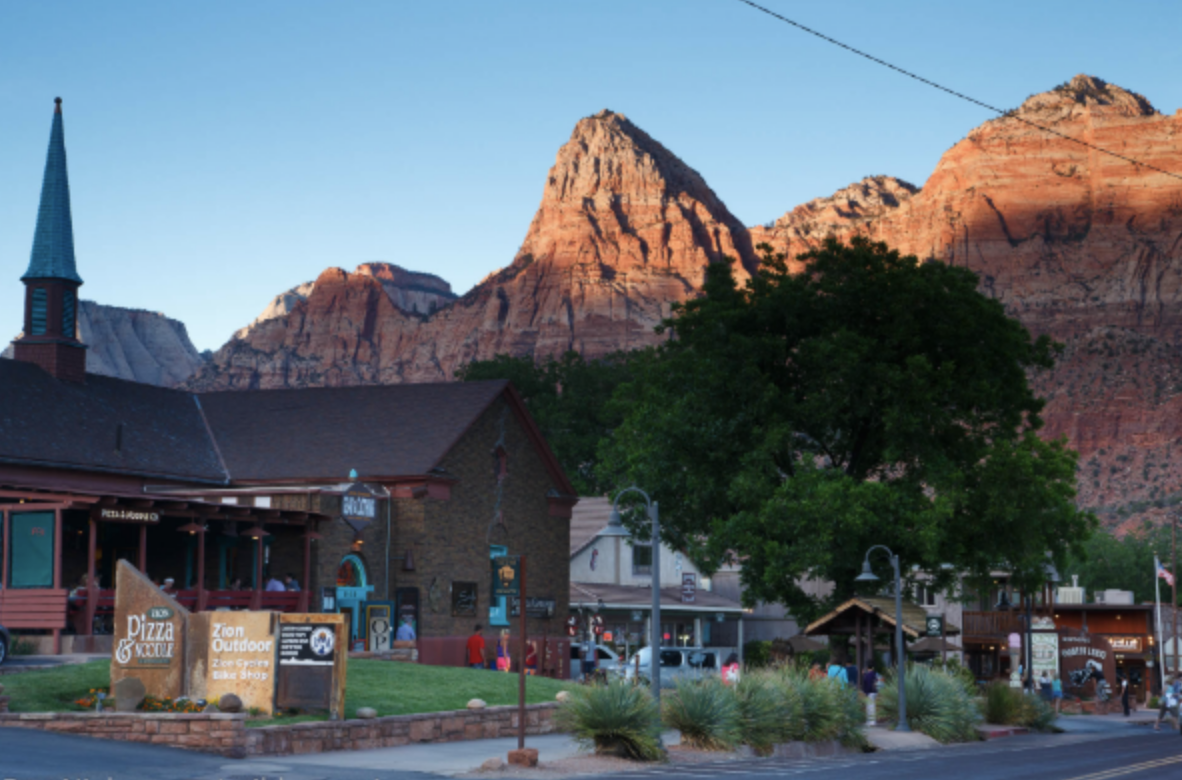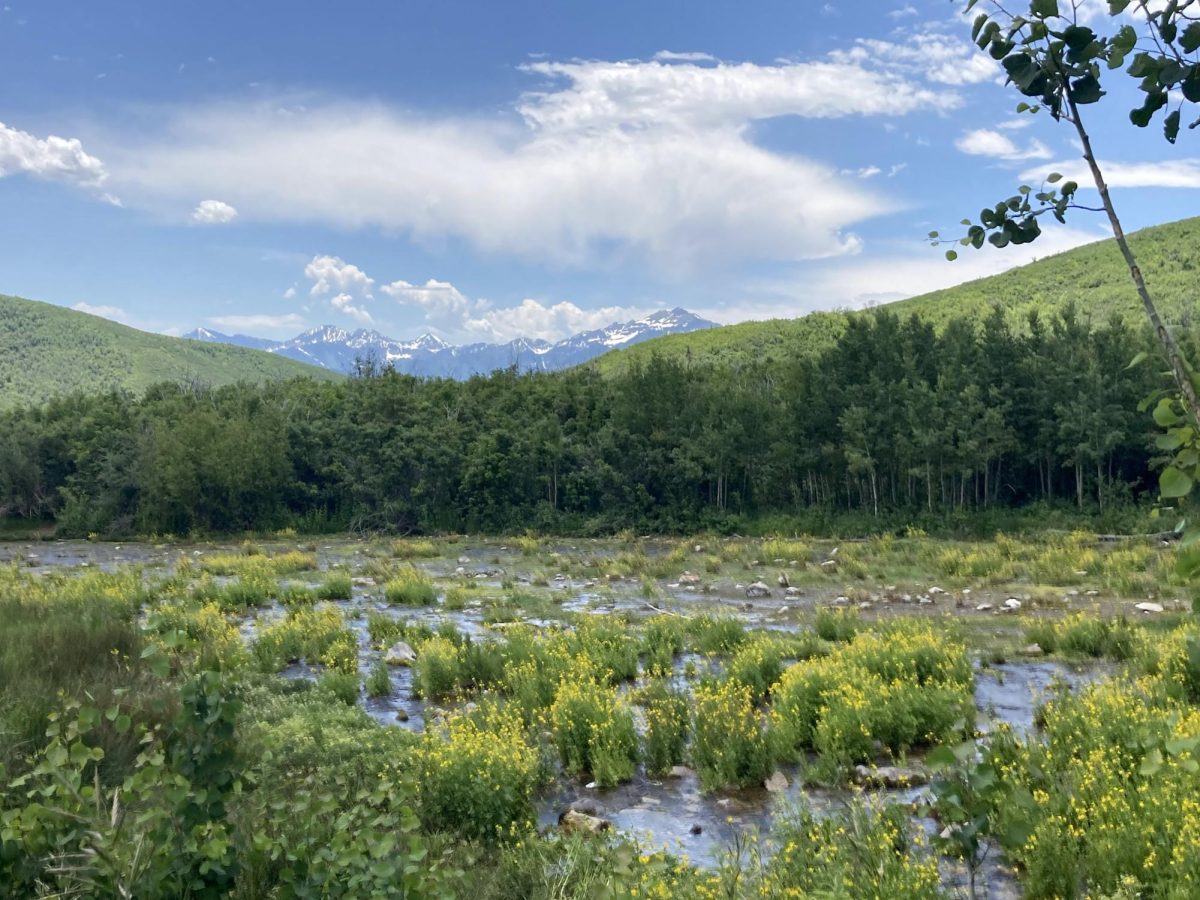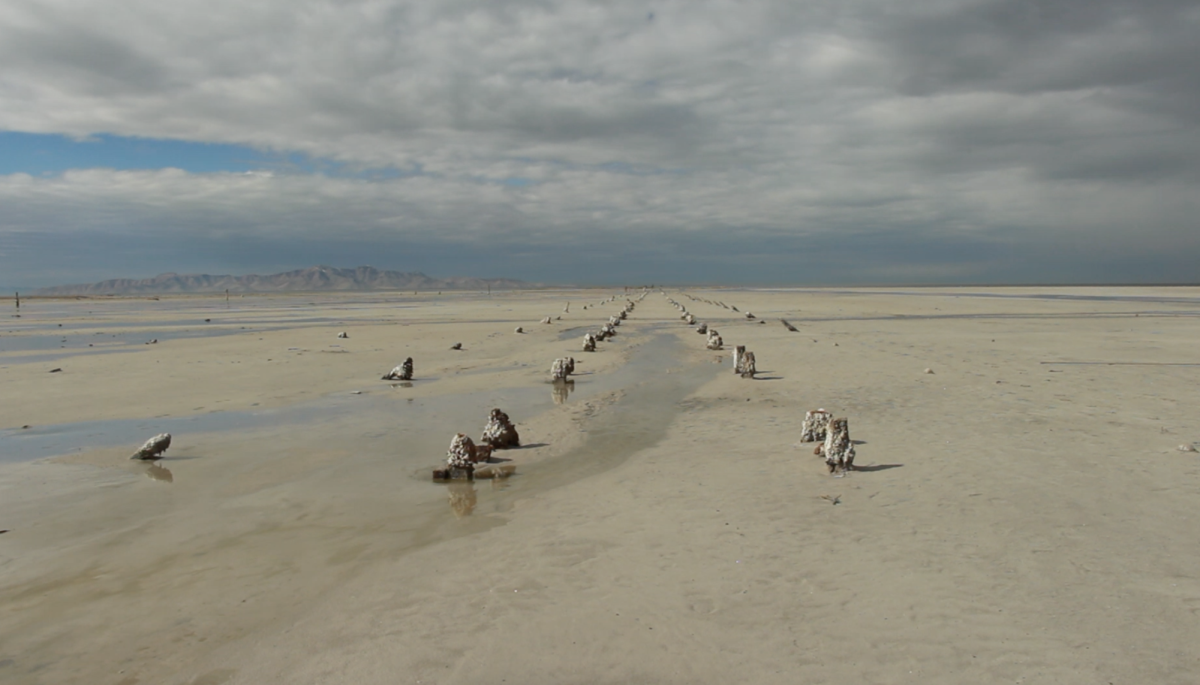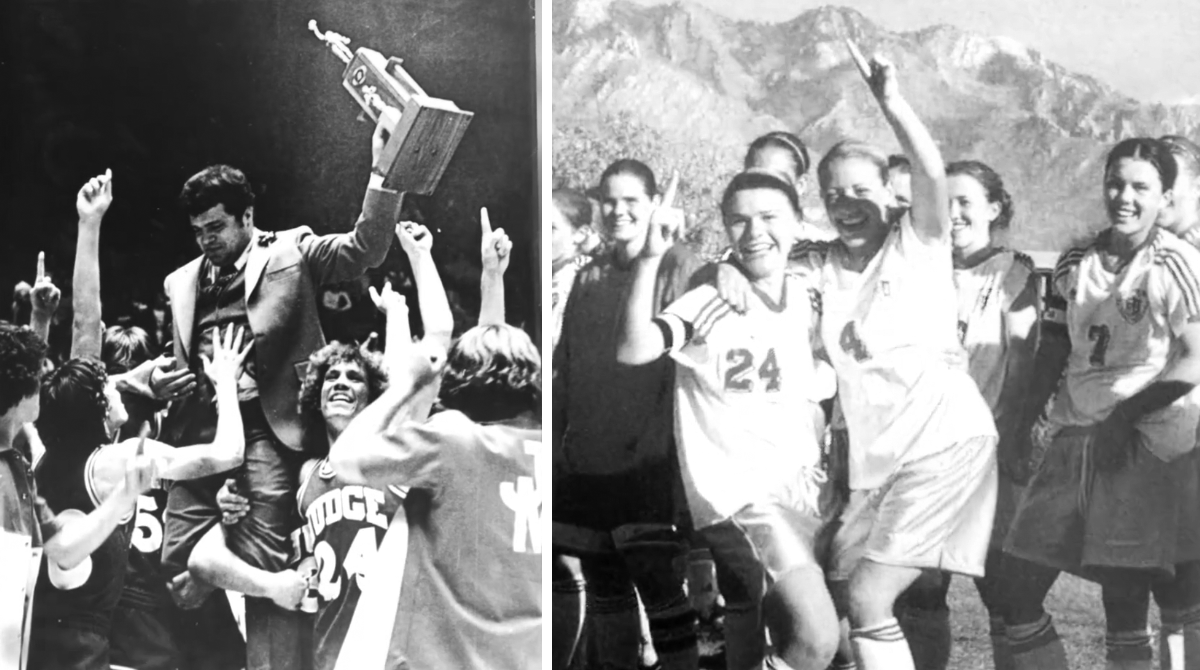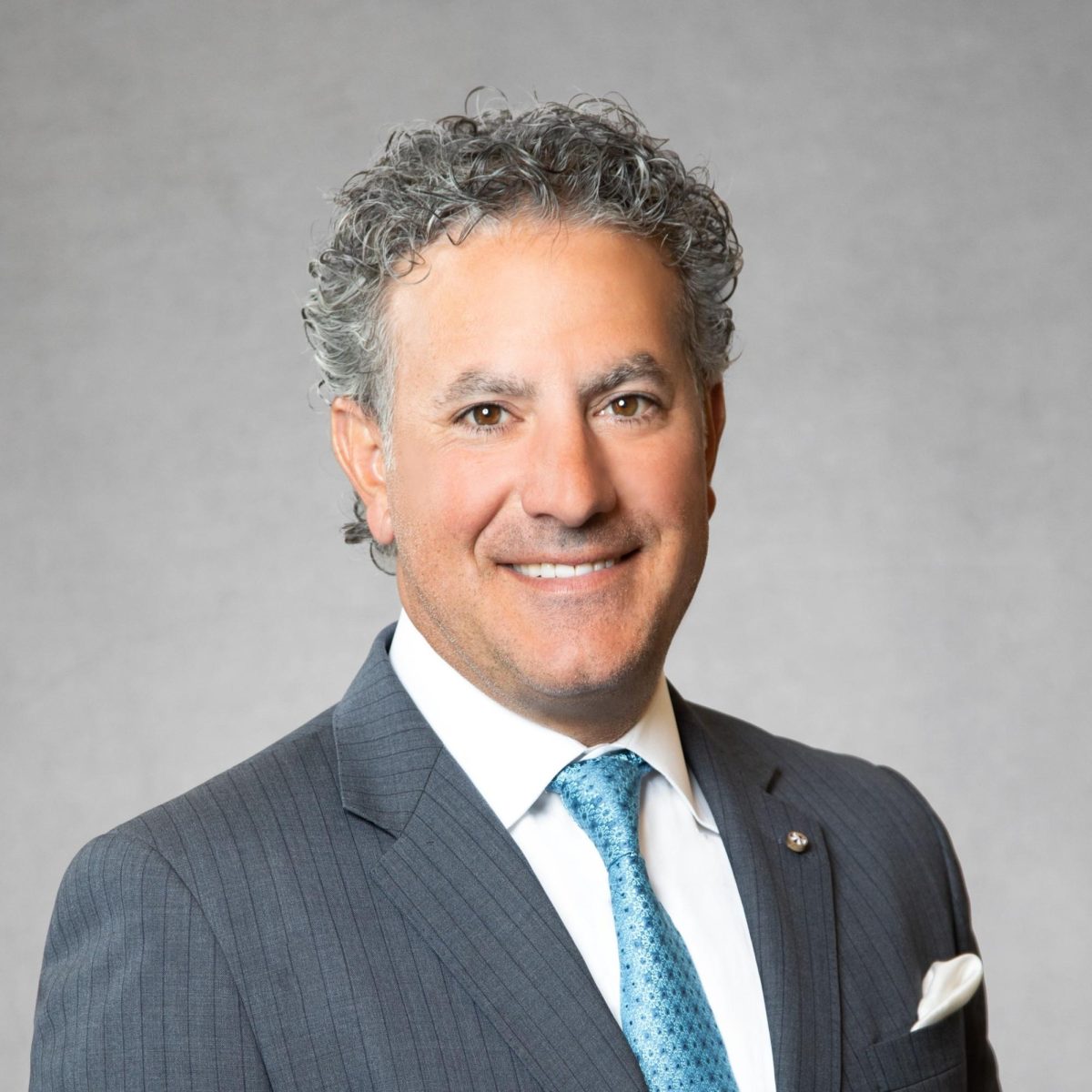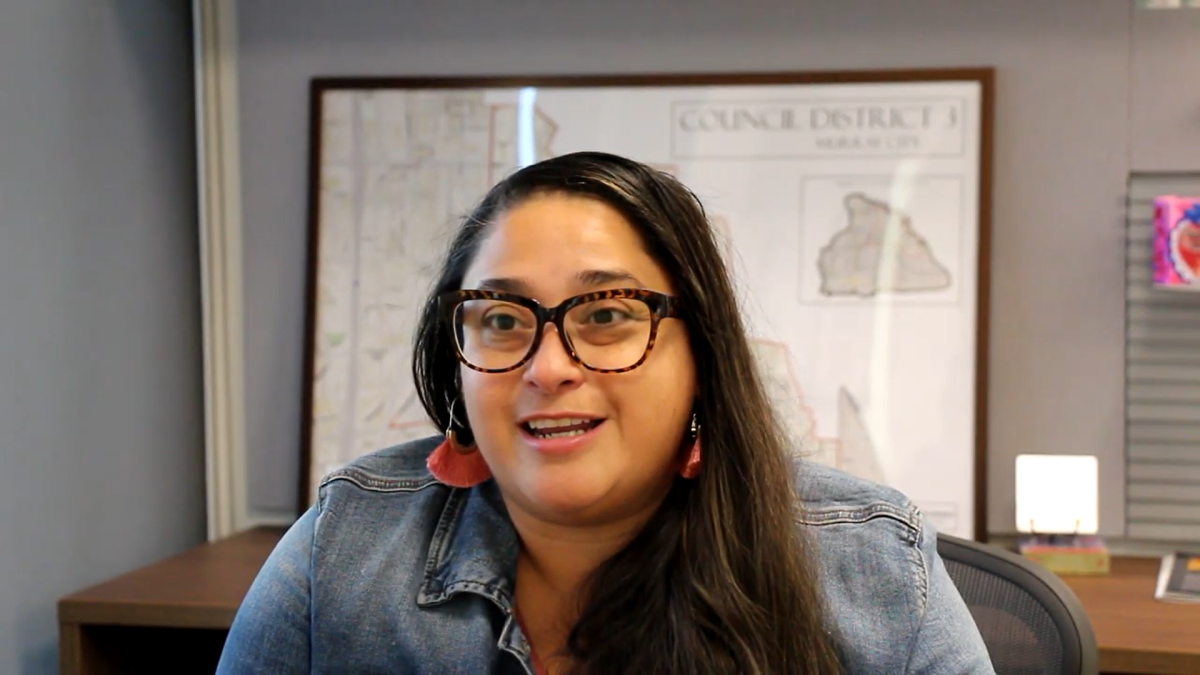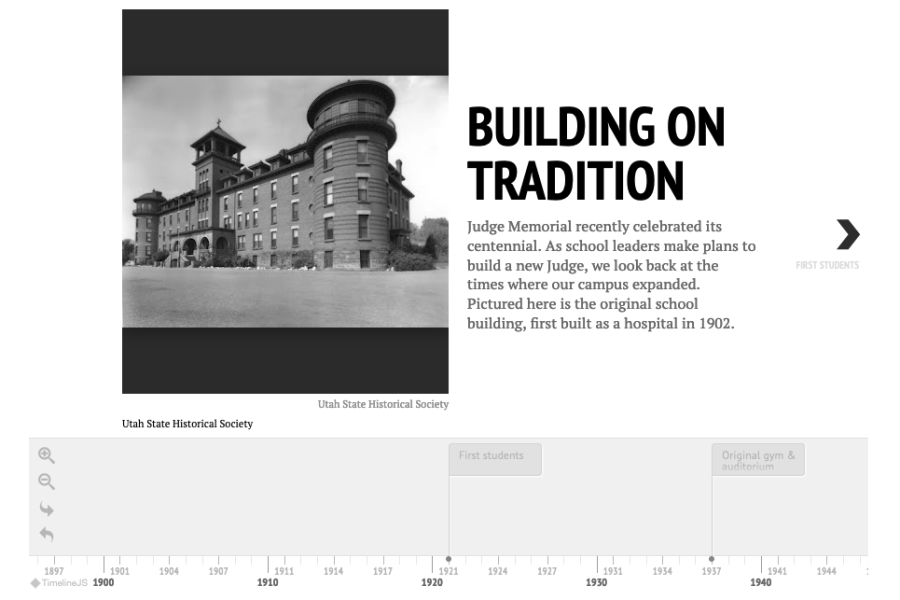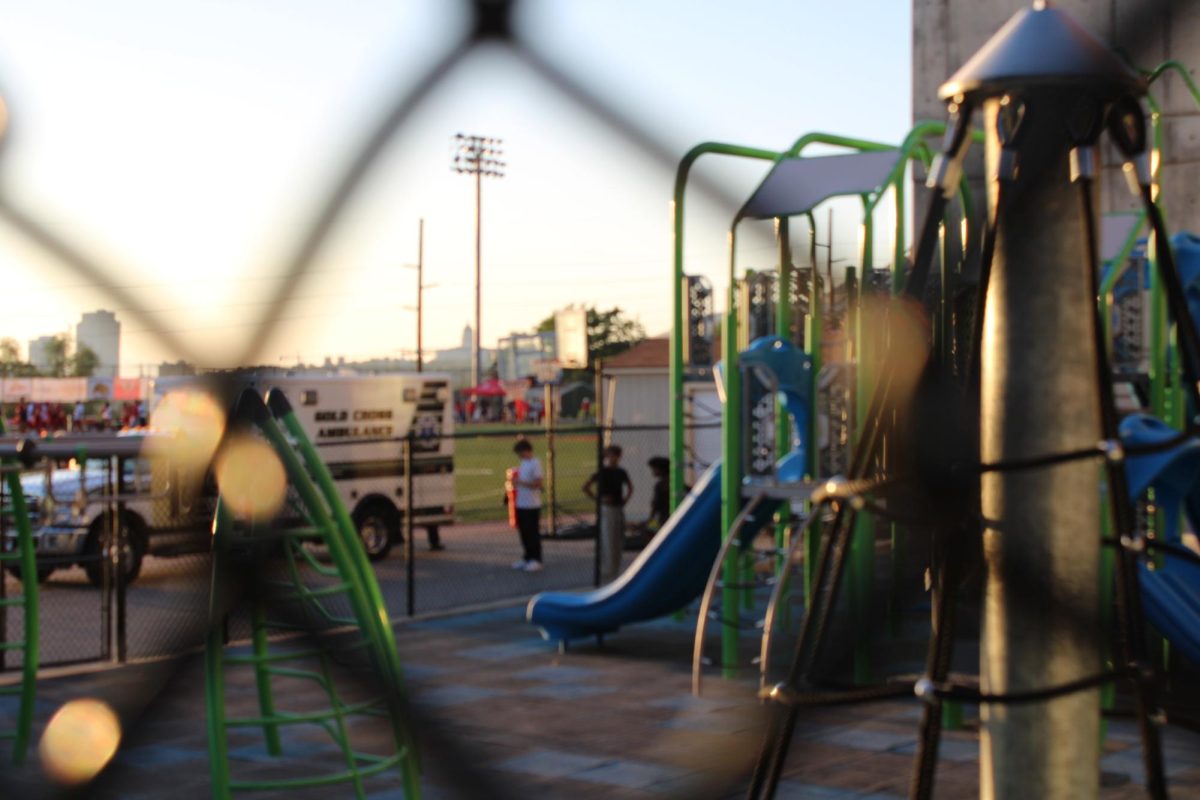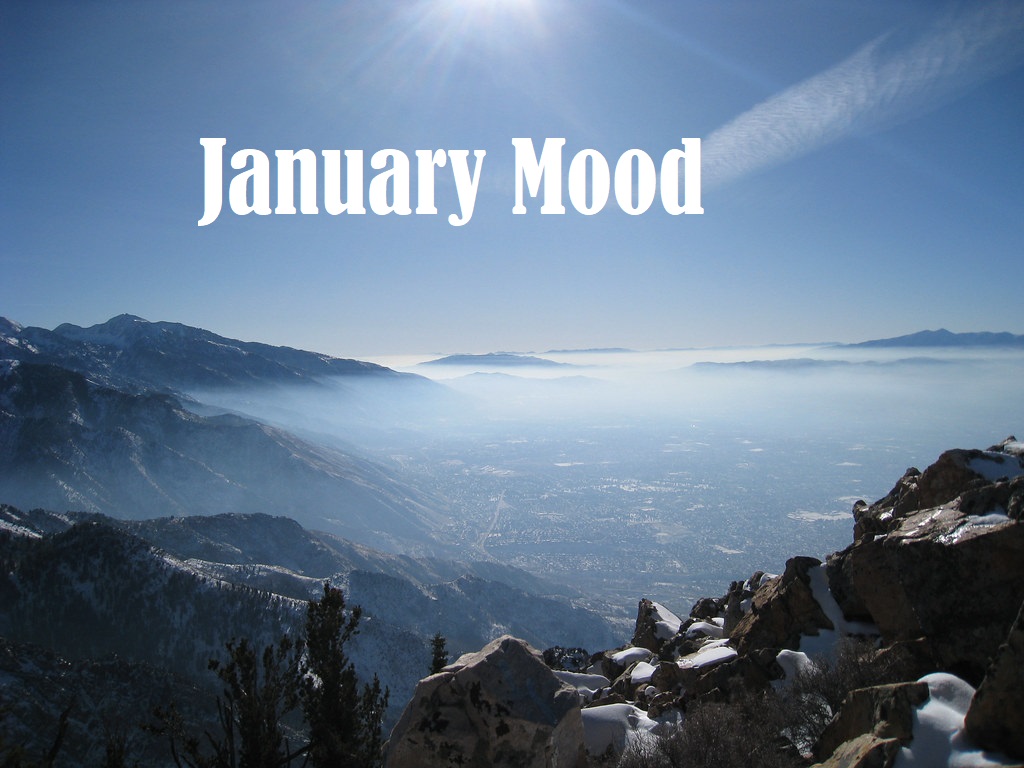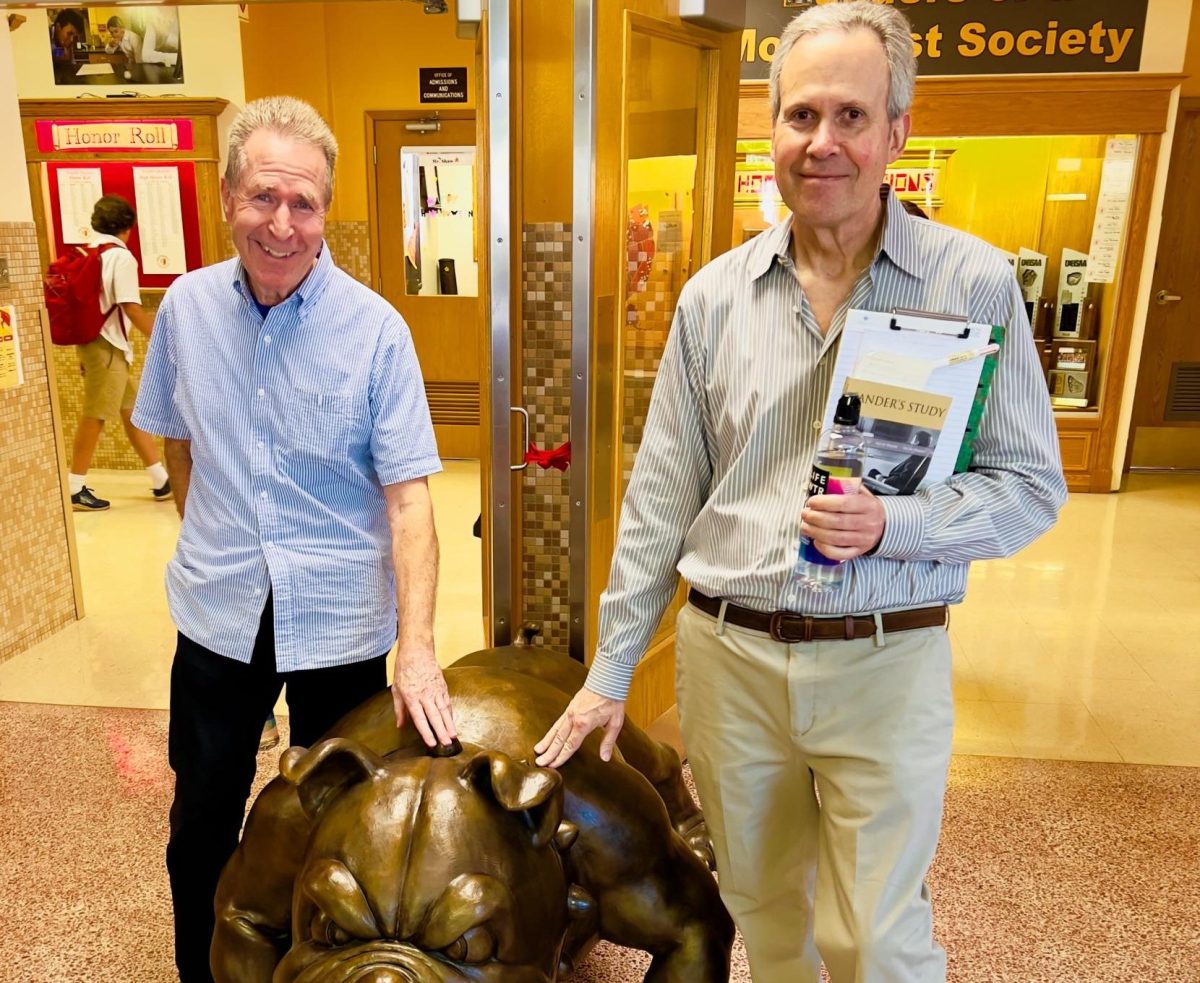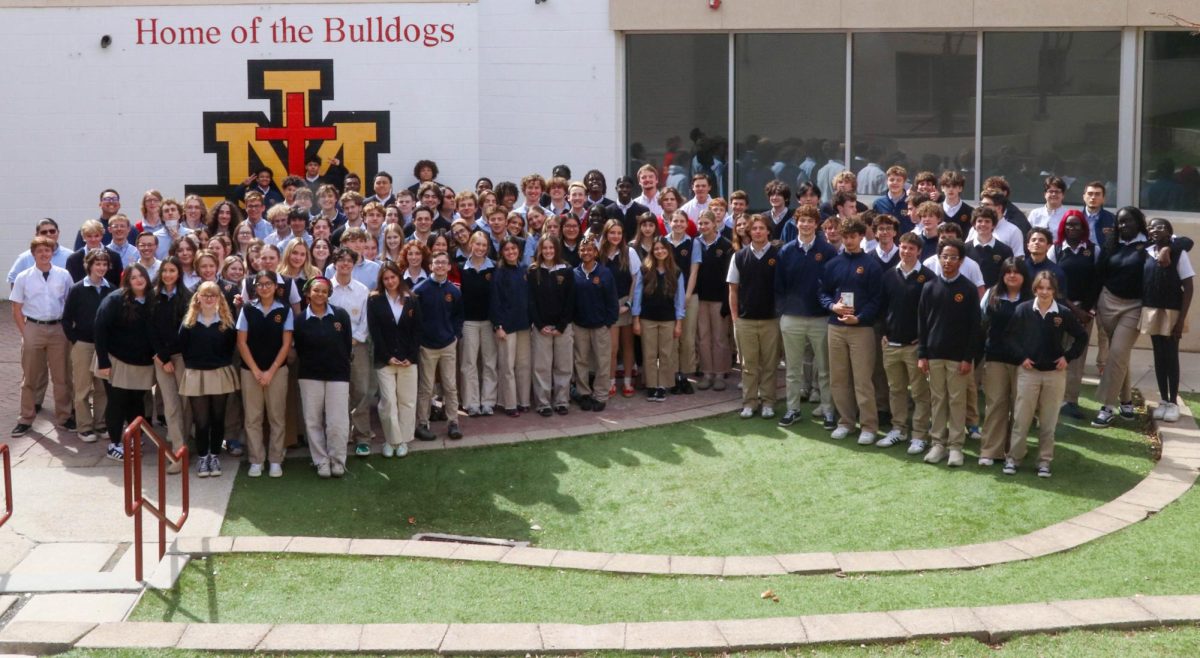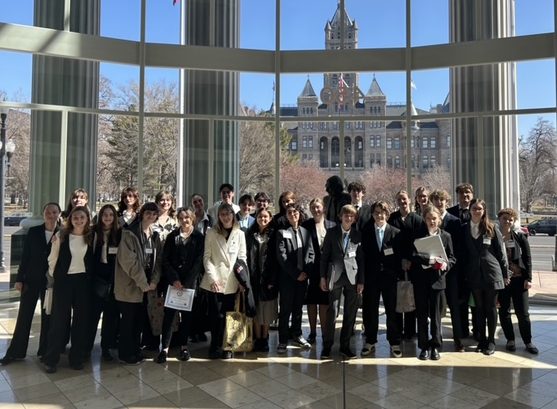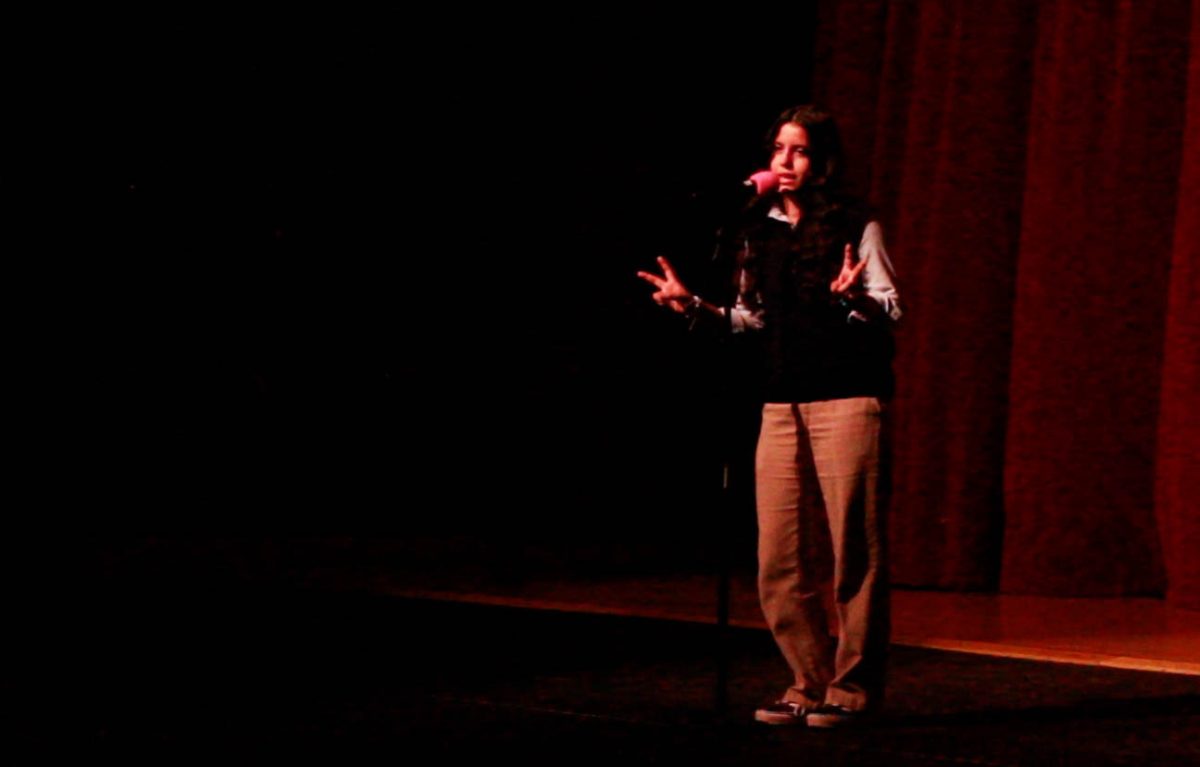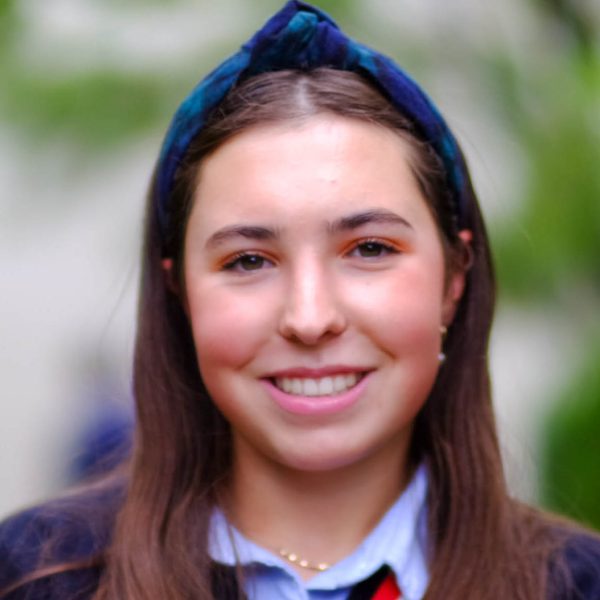On October 1, 2024, Judge Memorial was honored to play host to veteran journalists Randall Carlisle and Chris Vanocur.
The two newsmen joined Dr. Sloan’s Period 8 New Media class to discuss the changing role of media in society.
Both Carlisle, an award winning TV news anchorman, and Vanocur a Peabody award-winning TV news political reporter, shared video news stories, and first-person memories of their journalism careers with Judge students.
Class discussions centered around the 2024 Presidential Election, the 2002 Winter Olympic Games scandal, and how social media had impacted the ways we receive and respond to current events in the news.
Dr. Sloan’s class was grateful for the time spent with these two esteemed journalists and took away great knowledge from the lively Q&A session.
Our thanks to Randall Carlisle and Chris Vanocur for sharing their time with us.
Transcript
RC: Randall Carlisle
CV: Chris Vanocur
CS: Christopher Sloan
JB: Jennifer B
BB: Bailey B
NB: Nick B
0:00 – 0:07
Opening
0:08 – 0:22
BB: Breaking News, Bulldogs! Today, Dr. Sloan’s class was joined by veteran TV news anchorman, Randall Carlisle, and award-winning political reporter, Chris Vanocur.
0:24 – 0:32
BB: Dr. Sloan’s Period 8 New Media class was lucky to hear from such esteemed journalists about the state of news and media today.
0:33 – 0:47
RC: People don’t do it so much anymore because newsroom staffs are so small. And it’s good contacts that create good news. And that’s one of the reasons why you don’t see stories like that so much anymore.
CV: Especially locally.
0:47 – 1:02
CV: I actually have a question – I’ll get to this in a second – I’m curious how you all get your news. I read an article recently that said a lot of people your age get the news from TikTok, is that true?
(people agreeing)
CV: You’re kind of…?
NB: More or less.
Others: Social media. YouTube…
1:03 – 1:09
BB: They shared stories about working in news in national markets, and locally in Utah.
1:11 – 1:21
BB: He was followed by Chris Vanocur sharing eye-opening stories about how his breaking the 2002 Winter Olympic Games scandal put his life at risk.
1:22 – 1:23
CV (recording): Mayor, where did that money come from?
1:24 – 1:27
RV: So, did you ever get any threats?
1:28 – 1:54
CV: One was when I was in Switzerland, covering an emergency meeting of the Olympic officials, the IOC.
And the IOC president came out and made a presentation and said, “We’ve determined that we will keep the Olympic Games in Salt Lake in 2002.”
And up until then, it hadn’t occurred to me that they’d move them. And I was just stunned when I heard that, because, if they’d had to move them, that meant I’d have to move, too.
1:55 – 2:12
RC:…accepting bribes, because of his story. When he broke the story…which was such a significant story, because it changed the whole way the International Olympic Committee selected cities. Because they didn’t bribes anymore because of Chris’s story.
2:13 – 2:21
RC: I don’t even bother asking anymore, “Who leaked that story to you?” And he would never say because he was protecting his source.
2:22 – 2:25
RC: I presume you’re going to take that to your grave?
CV: Absolutely.
2:25 – 2:28
CS: In general, why do we have anonymous sources?
2:29 – 2:37
CV: Well, I’ll use the Olympic story as an example. In addition to a lot of very nice things that happened because I broke the story, I made a lot of enemies.
2:38 – 2:43
CV: If I had revealed how I’d gotten that story, other people would have made enemies too.
2:44 – 3:07
RC: And it was not anonymous, he knows how he got the story.
CS: Right.
RC: Well back then, I don’t know what it’s like now…but, in a newsroom, when you come in with a story of that kind of impact, obviously the company’s lawyers, and the news director and everybody else wants to make sure that he knows what he’s talking about. And so they vetted it to the point that they believed he knew what he was talking about.
3:08 – 3:22
(light laughter)
NB: When you got the tip, was it like somebody coming up to you and saying, “Hey, I know this?” Was it a letter in the mail, was it an email…like how did you first hear about the tip?
RC: I like your method of questioning.
3:23 – 3:37
CV: The Olympic story, for me, really hinged on a document I got, which was written by the people running Salt Lake’s Olympics. And it was addressed to the daughter of an Olympic official from Africa.
3:38 – 3:46
CV: “This letter is to inform you that this payment of…it was like $15,000 or something …will have to be our last payment for tuition.”
3:47 – 4:00
CV (recording): This is a letter the Salt Lake Olympic folks probably didn’t want us to get. It raises very serious questions about how Olympic money is being spent, and even about how Salt Lake got the Olympic bid in the first place.
4:01 – 4:21
CV (recording): This confidential letter was drafted in 1996 by a senior Salt Lake Olympic official. It’s written to Sonia Essamba and reads: “Under the current budget structure, it will be difficult to continue the scholarship program with you. The enclosed check for $10,000 plus will have to be our last payment for tuition.”
4:23 – 4:30
CV: And I was finally able to connect the dots. That, “Okay, this was the daughter of somebody who voted on whether Salt Lake could get the Olympic Games.”
4:30 – 4:37
CV: I won’t tell you from whom, but I actually got that document in a bar.
JB: Was it Green Street?
CV: It was Green Street.
(laughter)
4:38 – 4:54
CV: So we set up the meeting. I think it was like the middle of the afternoon in the bar. Nobody was there except the staff. And it was over very quickly. I got the document, and started driving back to the station. And I actually had to pull over because I was shaking. I didn’t know exactly what I had, but I knew it was pretty good stuff.
4:55 – 4:59
RC: It was a monumental moment in journalism, really, in terms of the Olympic movement.
5:00 – 5:20
BB: Carlisle and Vanocur’s visit coincided with the final debate of the 2024 Vice Presidential Election between Ohio senator and Republican candidate J.D. Vance, and Minnesota governor and Democratic candidate Tim Walz.
The two newsmen shared their views on the current election.
5:20 – 6:00
RC: I hate moderating debates because it’s very…I felt sorry for the ABC people doing the Trump / Harris debate because…I’m not being anti-Trump, but he tells a lot more lies than Harris did.
Because it’s hard to look like you’re totally impartial.
Like on the vice presidential debate tonight, they’ve set the ground rules and the moderators are not going to do any fact-checking. So either side can say whatever they want and people afterwards are going to have to do fact-checking.
And it’s hard to get straight answers out of politicians.
6:01 – 6:11
BB: Chris Vanocur shared one of his news stories on cell phone addiction from 2013. And students found his reporting on the subject of screen addiction both informative and comical.
6:12- 6:19
CV (recording): Siri, are we friends?
Siri: I would not wish any companion in the world but you.
6:20 – 6:28
CV (recording): Phones. We used to just talk on them, now they may be our best friend. Our “BFF.”
Interviewee: Yeah, it’s my friend.
6:29 – 6:41
CV (recording): They sleep next to us at night, and keep us company during the day. And if we lose them, we totally freak out.
Dr. Goldsmith: That’s an addiction to an appliance.
CV (recording): Siri, who just said that?
6:42 – 6:54
CV (recording): Dr. Douglas Goldsmith is the executive director of Utah’s Children’s Center. He says that on the positive side, cell phones can help foster friendships and that texting can be a valuable learning tool.
6:55 – 6:57
CV (recording): Siri, have you read TIME magazine?
6:58 – 7:09
CV (recording): In a special Wireless Edition, TIME reported that 9 out of 10 Americans have a mobile phone. 20% of those with phones check them every 5 minutes.
7:10 – 7:14
CV (recording): Siri, what troubles Dr. Goldsmith about cell phones?
7:15 – 7:23
Dr. Goldsmith: I think that this has an impact on relationships, especially with kids. When kids are now texting in six words and thinking that’s a conversation, it’s not a conversation.
7:24 – 7:33
CV (recording): Which brings us to…
Bystander: Siri.
CV (recording): No, not the one we met at the coffee garden. The one on the Apple iPhone.
7:34 – 7:41
CV (recording): Siri, a computerized personal assistant, now means we can not only talk on our phone but to our phone.
7:42 – 7:46
CV (recording): Our relationship with phones may only get stronger in the future.
7:47 – 7:50
Dr. Goldsmith: We can love it, we can hate it. We really have to learn how to live with it.
7:51 – 7:58
CV (recording): Siri, I can’t live without you.
Siri: I thought you could.
7:59 – 8:11
BB: Our huge thanks to Randall Carlisle and Chris Vanocur for sharing their years of esteemed journalism with our Judge Memorial class.
I am Bailey Britter with the Bulldog Press, thank you for watching.
8:12 – 8:17
Closing Credits

